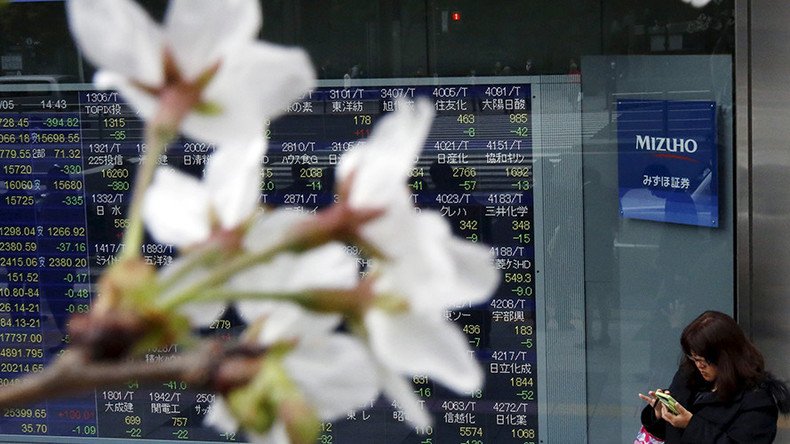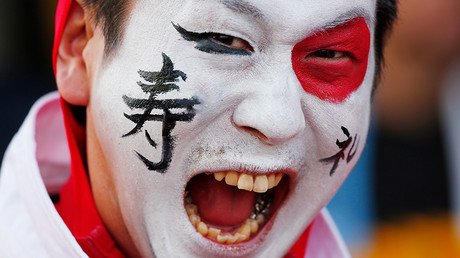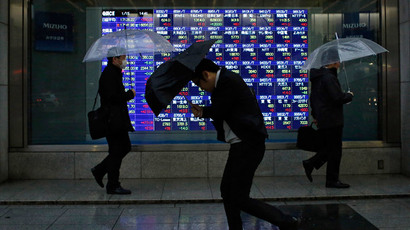Japan's central bank shocks markets by keeping stimulus on hold

Tokyo stocks tumbled after the Bank of Japan (BOJ) decided against any fresh market stimulus, leaving negative interest rates unchanged despite stagnation in the world’s third largest economy.
The unexpected move sent the Japanese currency up and stocks down. The yen rose nearly two percent against the US dollar on Thursday, with one dollar worth 109.33 yen. The Nikkei 225 index fell 3.6 percent to close trading at 16,666.05 points.
Contagion spread to other Asian markets with China’s Shanghai Composite slipping 0.5 percent and South Korea’s Kospi index closing 0.7 percent lower.
"This shows that too much expectation of further easing had been priced in and the BOJ has surprised the market by taking no action," market analyst of CMC Markets Margaret Yang told the BBC.
"It is probable that the central bank is temporarily running out of tools to stimulate the economy, or they need more time to observe and assess the impact of negative interest rates," she added.
The bank’s decision came in the wake of data that showed consumer prices plunging in March at the fastest pace in three years, and household spending falling at the fastest pace in a year.
Japan has been trying for years to revive its struggling economy. In a desperate move to encourage lending the BOJ introduced negative rates in January, but that failed to provide a much needed boost to the economy. It shrank 0.3 percent in the last quarter of 2015, and economists warn further GDP data will also be weak.
Wages in Japan haven’t grown more than one percent in any year since 1997, and actually shrank in the last four years when adjusted for inflation.
Prime Minister Shinzo Abe has been trying to reboot the country’s economy since he took power in 2012 and introduced a three-stage policy known as 'Abenomics'. However, economists often raise doubts about the policy, saying it is not working.














